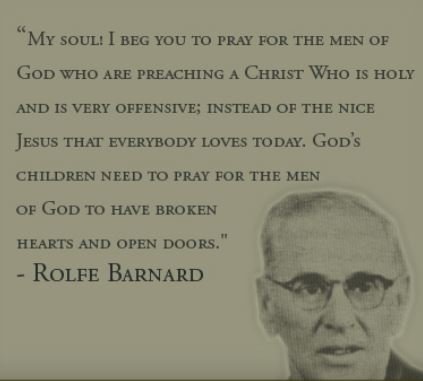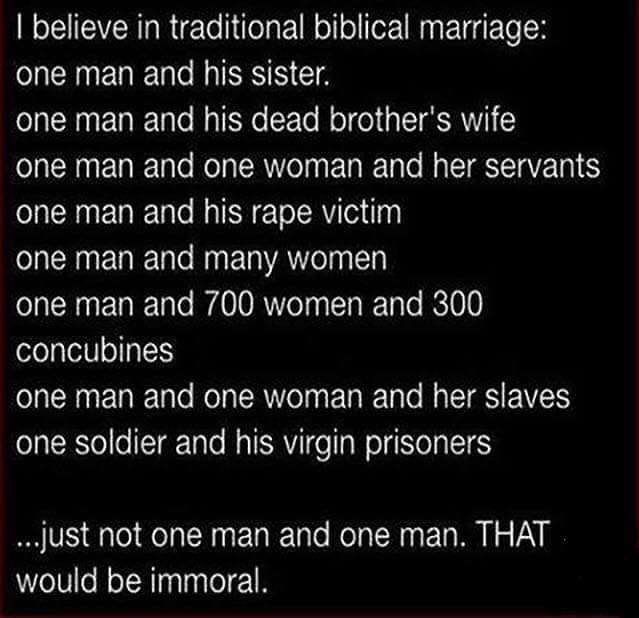
I put out the call to readers, asking them for questions they would like me to answer. If you have a question, please leave it here or email me. All questions will be answered in the order in which they are received.
Brocken asked:
I’ve listened to a few of Rolfe Barnard’s sermons. Do you think he was truthful with all of his sermons or do you think he was prone to lying for Jesus. I’m referring to one sermon where he talked of being opposed by seven deacons of one Baptist church and Rolfe Barnard praying to God to either convert them or kill them. According this sermon by Rolfe Barnard all seven deacons who opposed him all soon died.

Rolfe Barnard was a 20th century Southern Baptist evangelist. Barnard died in 1969. At one time, Barnard was affiliated with Independent Fundamentalist Baptist (IFB) John R. Rice and the Sword of the Lord. However, Barnard fell out of favor with Rice after he began emphasizing the doctrines of grace (five points of Calvinism) in his preaching. From that time forward, Barnard preached for Calvinistic Baptist churches.
During my transition from IFB doctrine to Calvinism, I stumbled upon the preaching Rolfe Barnard. In Part two of the series, Why I Became a Calvinist, I wrote:
My first exposure to Calvinism came in 1988 when I began borrowing and listening to cassette sermon tapes from Chapel Library — a Calvinistic tape lending library and tract publisher in Pensacola, Florida. I had seen an ad for Chapel Library in a periodical I received, so I thought I would write to request a list of sermon tapes. Most of the preachers on the list were not familiar to me, but one name stood out: Martyn Lloyd-Jones. Lloyd-Jones, who died in 1981, was a well-known British Evangelical pastor. He was the pastor for many years of Westminster Chapel in London.
Along with a handful of Lloyd-Jones’ sermon tapes, I ordered tapes of Rolfe Barnard, a Southern Baptist evangelist. While I thoroughly enjoyed Lloyd-Jones’ sermons — and I would listen to dozens more of them over time — it was Barnard’s sermons that blew me away. Here was a Calvinist who preached with the fervor of an old-fashioned fire and brimstone evangelist. I had never heard Calvinistic preaching before listening to Lloyd-Jones and Barnard. I had been told that Calvinistic preachers were dried up prunes with little zeal, passion, or power. I was big fan of nineteenth century Calvinistic Baptist preacher Charles Spurgeon, but having only read his sermons, I had no idea how Spurgeon sounded. I assumed he preached with great authority and power, but since there are no recordings of his preaching, all anyone can do is assume how Spurgeon preached.
I attended Midwestern Baptist College in Pontiac, Michigan from 1976-1979. Midwestern — an Independent Fundamentalist Baptist (IFB) institution — was resolutely opposed to Calvinism. Ironically, one of the college’s men’s societies carried Spurgeon’s name. When questioned about having a society named after Charles Spurgeon, students were told that, yes, Spurgeon was a Calvinist, but God mightily used him in spite of his Calvinism. More than a few IFB preachers suggested that Spurgeon was not a “true” Calvinist; that his zeal for winning souls was inconsistent with his Calvinistic beliefs. I would later thoroughly study Spurgeon’s published sermons, and I determined, without question, that Charles Haddon Spurgeon was an Evangelical five-point Calvinist.
While Spurgeon was my favorite nineteenth-century preacher, Rolfe Barnard quickly became my favorite modern-day preacher. Many of his recorded sermons were preached at Thirteenth Street Baptist Church in Asheville, Kentucky. For many years, Henry Mahan was the pastor of Thirteenth Street. I called Henry one day to see if he had contact information for Barnard. I wanted to have him come preach a meeting at our church. Henry told me, well brother, Brother Barnard died in 1969. (Henry and I would later develop a friendship. I visited Thirteenth Street several times, and Henry came to Ohio to preach a conference at the church I was pastoring.)
….
Barnard’s sermons made a deep, lasting impression on my life. As Barnard preached the Calvinistic gospel and spoke of God’s sovereignty and grace, I found myself emotionally stirred. I asked myself, why hadn’t I ever heard these “truths” before? Why hadn’t my college professors told me of these “truths?” In time, I came to believe that my mentors and professors had lied to me about the gospel, salvation, and God’s grace.
Barnard, then, opened the door for me to Evangelical Calvinism; and once the door was opened there was no going back. I began buying and reading books written by Calvinistic theologians and pastors — many of them from the seventeenth and eighteenth centuries. Over time, I would buy almost one thousand theology books and Christian biographies. One time, a church teen walked into my study, looked at all my books, and said, preacher, have you read all these books? With great humble pride I replied, yes, every one of them. I was quite proud of my library, a common trait found among Calvinistic preachers. It was through these books and the preaching tapes from Chapel Library that Bruce Gerencser, a one-time IFB preacher, became an Evangelical Calvinist.
If you have never listened to one of Barnard’s sermons, give the following sermon a listen.
Needless to say, Rolfe Barnard made a huge impression on me. Now to Brocken’s question. Was Barnard a “liar for Jesus?” Evangelists are known for their dramatic stories, and Barnard was no exception. His stories would literally cause me to weep. I never asked myself whether Barnard’s stories were true. While I have no definitive proof for the claim that Barnard was a “liar for Jesus,” all the people in his stories are long since dead, so I can’t verify his sensational claims. However, as with the fantastical claims found in the Bible, I seriously doubt that Barnard’s stories were true. There may have been elements of truth in Barnard’s illustrations, but it is doubtful that many of his stories happened exactly as he said.
At one time, I revered Barnard. I listened to ALL of his available sermons. Thus, it is not easy for me to say that he was a “liar for Jesus.” But skepticism demands that I pay closer attention to Barnard’s stories. It is clear, at least to me, that he was prone to exaggeration (Baptist for lying).
Bruce Gerencser, 68, lives in rural Northwest Ohio with his wife of 47 years. He and his wife have six grown children and sixteen grandchildren. Bruce pastored Evangelical churches for twenty-five years in Ohio, Texas, and Michigan. Bruce left the ministry in 2005, and in 2008 he left Christianity. Bruce is now a humanist and an atheist.
Your comments are welcome and appreciated. All first-time comments are moderated. Please read the commenting rules before commenting.
You can email Bruce via the Contact Form.





